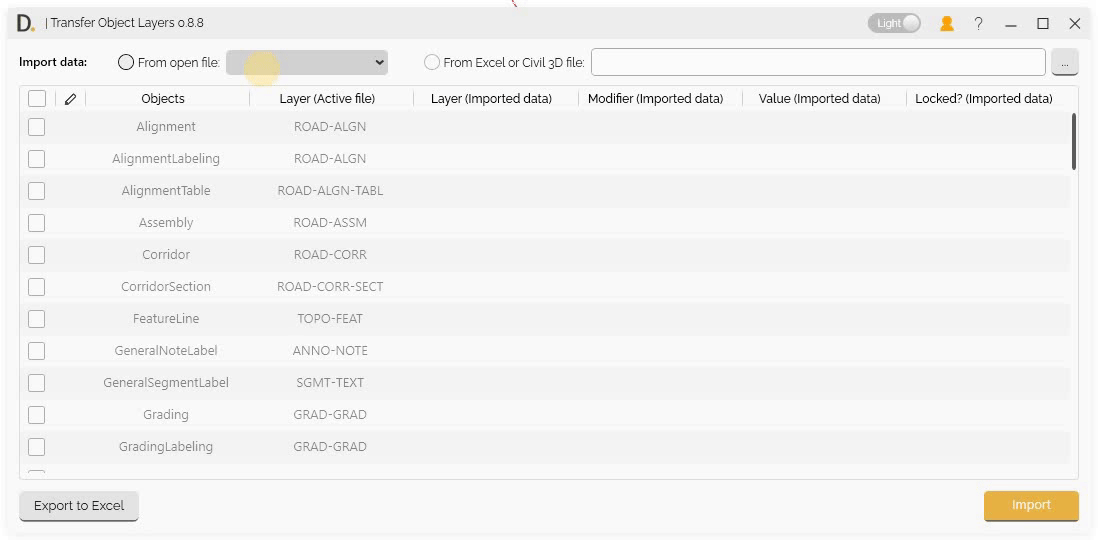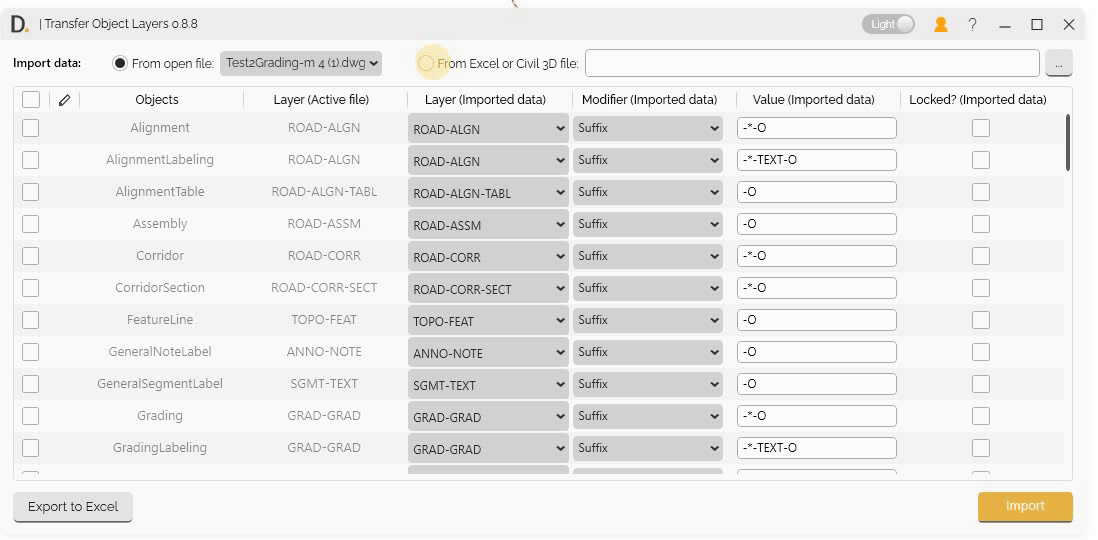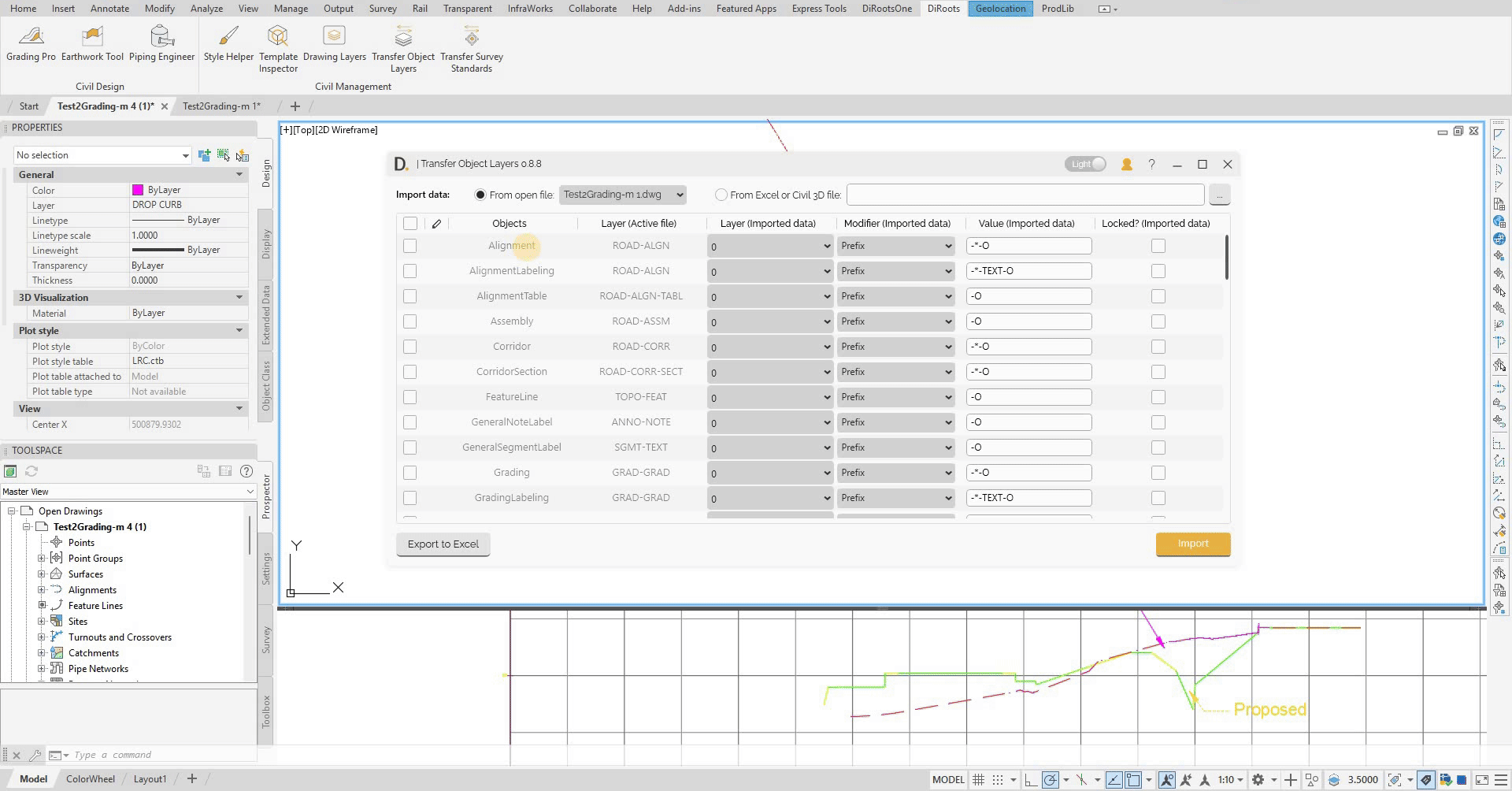Transfer Object Layers
Table of contents
Transfer Object Layers
Transfer Object Layers provides comprehensive functionality to transfer Civil 3D object layer settings between projects, including direct file transfer and Excel export/import capabilities for creating and managing standards.
Overview
Transfer Object Layers allows you to:
- Import object layer data from multiple sources.
- Edit and modify data before transferring.
- Export current file settings as standards.
- Create and manage standards efficiently.
- Share standards across teams.
Import Options
Transfer Object Layers provides three main ways to import object layer data:
1. Import from Open File
Import object layer data from currently open Civil 3D files:
- File Selection - Select from currently open Civil 3D files.
- Direct Import - Import object layer data directly from open files.
 Note: the version on the image may not reflect the latest version of DiCivil Package.
Note: the version on the image may not reflect the latest version of DiCivil Package.
2. Import from Closed File
Import object layer data from closed Civil 3D files:
- File Browser - Browse and select closed Civil 3D files.
- Data Extraction - Extract object layer data from closed files.
- Offline Import - Import data without opening the source file.
 Note: the version on the image may not reflect the latest version of DiCivil Package.
Note: the version on the image may not reflect the latest version of DiCivil Package.
3. Import from Excel
Import object layer data from Excel files containing standards:
- Excel File Selection - Select Excel files containing object layer data.
- File Validation - Validate Excel file format and content.
 Note: the version on the image may not reflect the latest version of DiCivil Package.
Note: the version on the image may not reflect the latest version of DiCivil Package.
Modify Data Before Transferring
Transfer Object Layers provides data editing capabilities, allowing you to modify object layer data directly in the UI before transferring to your target file.
Imported Data Display
View all imported object layer data:
Imported object layer data is displayed in a structured table with four main columns:
- Layer.
- Modifier.
- Value.
- Locked.
This layout allows you to easily review and understand each object’s layer configuration before proceeding with transfer.
Direct Editing
After importing object layer data, you can edit the data directly in the UI before transferring to your target file.
 Note: the version on the image may not reflect the latest version of DiCivil Package.
Note: the version on the image may not reflect the latest version of DiCivil Package.
Export to Excel
Transfer Object Layers provides Excel export functionality with two main export options to create and manage standards.
Export Options
Choose from two export sources:
1. Export Active UI Data
Export the currently displayed and edited data from the UI:
- Current UI State - Export data as it appears in the current UI table.
- Edited Data - Include any modifications made in the data editing interface.
 Note: the version on the image may not reflect the latest version of DiCivil Package.
Note: the version on the image may not reflect the latest version of DiCivil Package.
2. Export Open Active File
Export object layer data directly from the currently open Civil 3D file:
- File-based Export - Export data from the open Civil 3D file.
- Original Data - Export original object layer settings without UI modifications.
 Note: the version on the image may not reflect the latest version of DiCivil Package.
Note: the version on the image may not reflect the latest version of DiCivil Package.